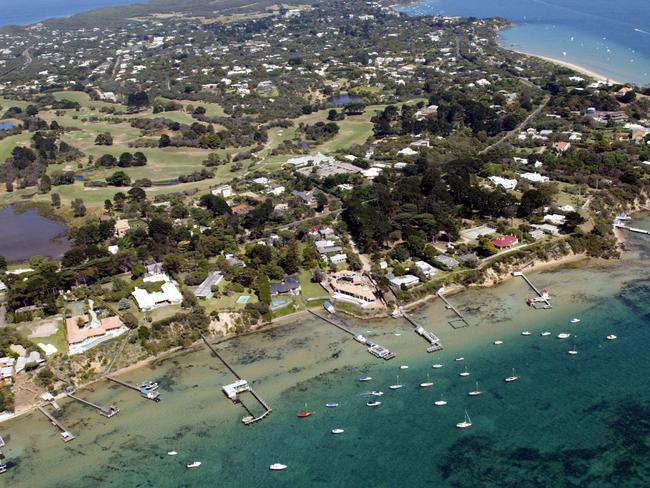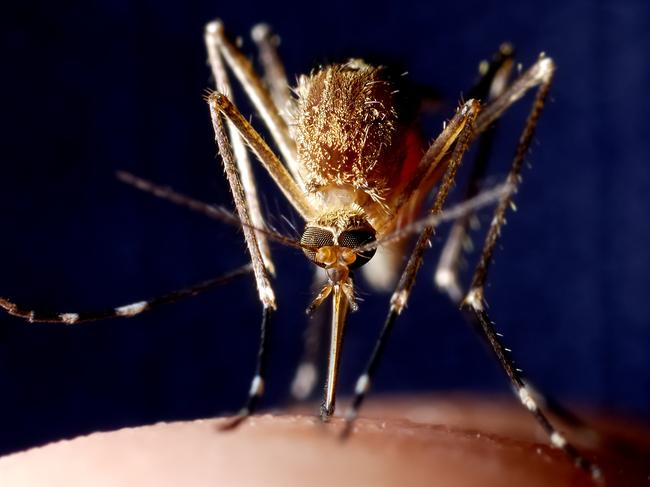Buruli ulcer: Mornington Peninsula mosquito spray plan
A plan to spray “industrial-strength Mortein” over the Mornington Peninsula to control a disease-carrying mosquito was met with fury by residents earlier this week. And now local beekeepers have weighed in.

South East
Don't miss out on the headlines from South East . Followed categories will be added to My News.
“Industrial-strength Mortein” will be sprayed from Rosebud to Portsea in the battle against the spread of a flesh-eating ulcer.
The experiment is an attempt to reduce the mosquito population and test a theory that the insects are partially responsible for a spike in Buruli ulcer cases in the region.
But already more than 3500 people have signed a petition against the plan, fearing environmental damage and human health impacts.
Buruli ulcers are painful sores that don’t heal and slowly get bigger, developing into deep ulcers that can require plastic surgery.
The number of Victorian cases has almost doubled in recent years, from 182 in 2016 to 340 in 2018.
Of the 340 cases in 2018, almost half (148) were linked to the Mornington Peninsula.
This year there have been 28 cases linked to the region.
A report states beekeepers would be encouraged to contact the research team to ensure no hives were “accidentally treated”.
But Save the Bees Australia said beekeepers were “unlikely to feel any assurance that their bees will be safe even if they register their hives … because bees forage for up to 4km” and the pesticide had a “residual effect for weeks”.
Despite the growing problem, people with properties in the area earmarked for the mosquito control program are worried about environmental and health impacts, and are angry they weren’t consulted.
Kirsten Gellie said despite having had an ulcer she was “vehemently opposed” to the plan.
“Insecticide spraying will adversely affect fauna (birds, fish, mammals, other insects, even your pets) and people,” she said.

“Action needs to be taken, but this is so random... it beggars belief.”
Linda Wimetal, of Rye, said she would support the project if “authorities can show that it is totally safe for the environment and public health”.
Ms Wimetal had an ulcer on the back of her hand that required nine months of treatment.
“This is a debilitating and hideous condition that can cause untold misery to those unfortunate enough to have it,” she said.
“But any research or study must be done safely and with the support of the community in question.”
A petition against spraying was started on July 15 and garnered more than 4000 signatures in less than a day.

Petition creator Simon Mulvaney said the council could “potentially risk residents’ health and decimate the indigenous bee population” by attempting to kill mosquitoes with synthetic pyrethroid neurotoxins — “effectively industrial-strength Mortein”.
Under the Beating Buruli mosquito control study research teams will identify 76 small residential areas on the southern peninsula and randomly place them in either ‘intervention’ or ‘control’ groups.
Everyone living in the study area will receive information on how to protect themselves from mosquito bites and the diseases the insects might transmit — such as the Buruli ulcer.
The intervention clusters would also be sprayed with synthetic pyrethroid (SP) pesticide every four to six weeks during mosquito breeding season (December 2019-April 2020).
Larvicide (blocks of methoprene) would also be dropped into public water ways considered to be likely breeding grounds for mosquitoes.
RELATED
CITIZEN ARMY RECRUITED IN BURULI BATTLE
VICTIM SHARES SHOCKING STORY ABOUT FLESH-EATING BUG
BURULI ULCER CASES SOAR ACROSS MORNINGTON PENINSULA
Fogging (misting of SP) would be conducted up to four times throughout the season depending on the number of adult mosquitoes identified via surveillance traps.
A report on the plan acknowledged that the use of pesticides carried “a risk of collateral damage to other insect populations”.
In a joint statement released by the Department of Health and Human Services and Mornington Peninsula Shire residents were assured that synthetic pyrethroid pesticides had a “long history of safe and effective use in mosquito control activities, both in Victoria and overseas”.
Community consultation was being planned and residents given the option to “opt out”, the statement says.
Beekeepers would be encouraged to contact the research team to ensure no hives are “accidentally treated”, the report says.
But Save the Bees Australia said beekeepers were “unlikely to feel any assurance that their bees will be safe even if they register their hives with the Shire because bees forage for up to 4km” and synthetic pyrethroid pesticides had a “residual effect for weeks”.
The Beating Buruli project is funded by the National Health and Medical Research Council, Victorian Department of Health and Human Services and Mornington Peninsula Shire Council.
The mosquito control aspect was approved in February by the Victorian Department of Health and Human Services Human Research Ethics Committee.
